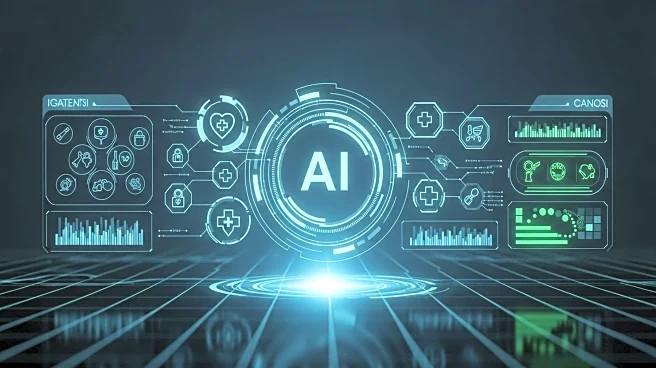What is the story about?
What's Happening?
Healthcare payers offering Medicare Advantage and Dual Special Needs Plans face complex translation requirements for member-facing materials. AI, specifically generative AI, offers transformative potential by accelerating the translation process and improving consistency and accuracy. AI tools like GPT-4 can reduce reliance on human translators, but healthcare payers must evaluate AI solutions based on compliance, accuracy, and security within a regulated ecosystem. Integrated AI solutions can mitigate risks associated with data privacy and workflow inefficiencies.
Why It's Important?
The integration of AI in healthcare translation processes is crucial for improving operational efficiency and meeting regulatory requirements. By automating translations, healthcare payers can reduce costs and enhance the accuracy of member communications. This shift is significant for the healthcare industry, as it supports accessibility and service excellence in a diverse and multilingual population. AI-driven solutions offer a strategic advantage for payers committed to operational excellence and member-centered engagement.
What's Next?
Healthcare payers are advised to focus on AI solutions that align with existing workflows and compliance requirements. The integration of AI into document generation and communications management platforms can enhance scalability and accuracy. As AI adoption increases, healthcare payers must balance technological innovation with the preservation of data privacy and security.
Beyond the Headlines
The ethical implications of AI in healthcare, such as data privacy and security, are critical considerations. Healthcare payers must ensure that AI tools are used responsibly and transparently, maintaining the integrity of member communications. The shift towards AI-driven translation processes may influence broader industry standards and practices.















